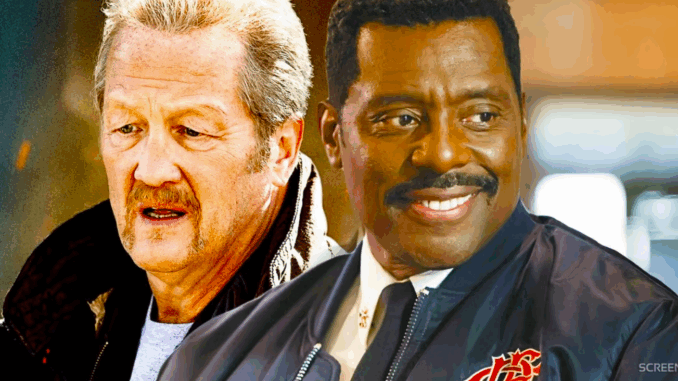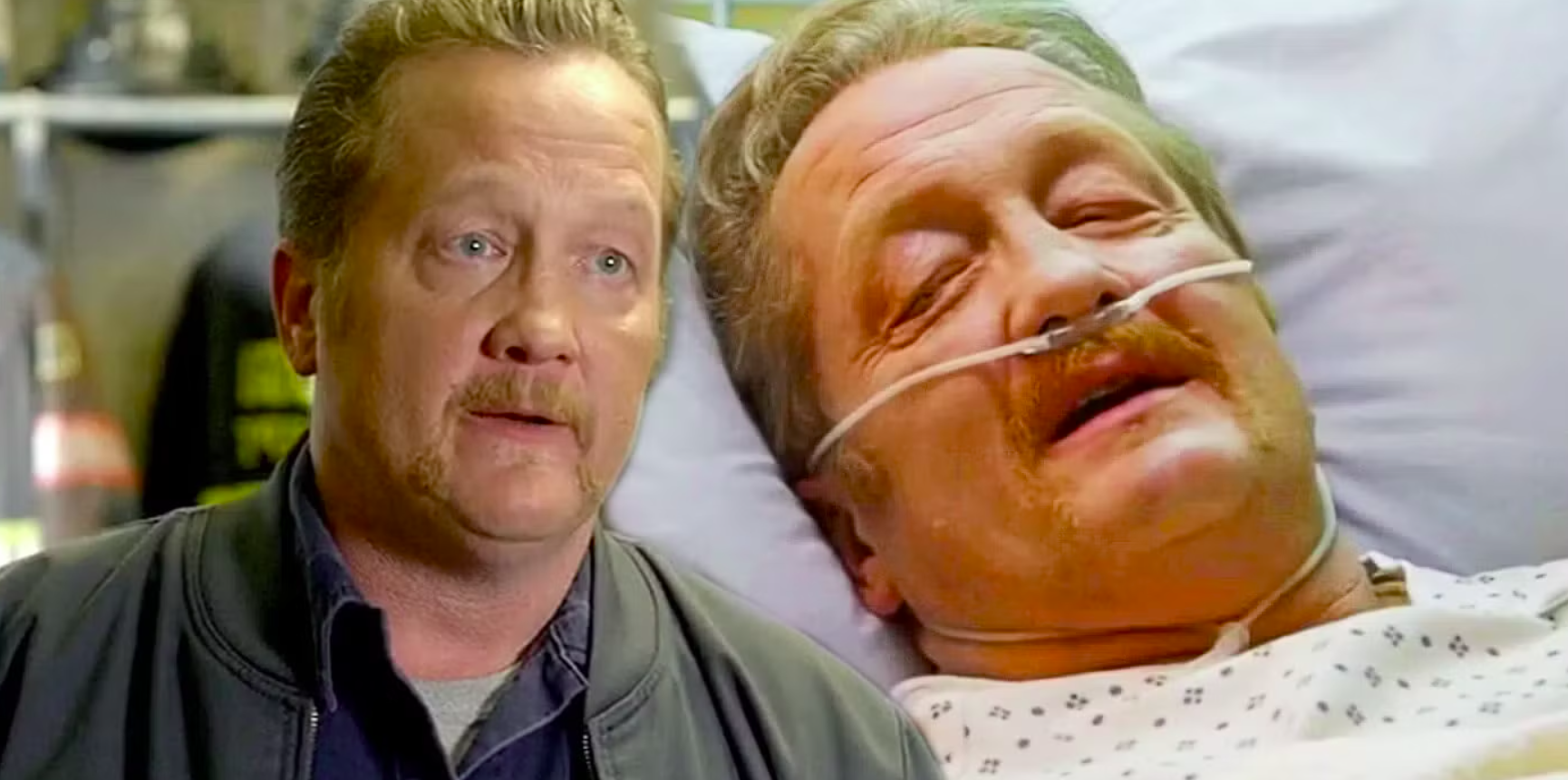
A Veteran in Crisis
Randall “Mouch” McHolland has long been the comic relief and emotional heart of Chicago Fire. With his blend of dad jokes, passion for union politics, and surprising bravery, he’s become one of the show’s most beloved characters. But in the Season 11 finale, fans were blindsided when Mouch was critically wounded in the line of duty—a rare moment when his mortality was front and center.
The incident wasn’t just shocking. It was a reminder that even the most stable pillars of Firehouse 51 are vulnerable. As Mouch clung to life in a hospital bed, his blood pressure plummeting, and his fellow firefighters frozen with grief and uncertainty, Chicago Fire gave viewers one of its most emotionally wrenching cliffhangers.
More Than a Cliffhanger: It Was a Wake-Up Call

Most season finales aim for suspense, but this moment felt different. It wasn’t just about whether Mouch would survive—it was about what his absence would mean to everyone else. Herrmann, who’s often paired with Mouch in both comedy and camaraderie, looked utterly broken. Even Severide, who tends to mask his emotions, seemed visibly shaken. For once, the team didn’t have an answer. They were human, helpless, and hurting.
Mouch’s injury wasn’t some random act of danger—it was the price of bravery. He had stayed behind to help in a scene that had turned chaotic. The wound, sustained by shrapnel, symbolized what it means to be a firefighter: doing what’s right even when it’s dangerous.
Facing Mortality at Firehouse 51
What made this storyline so effective was how it lingered beyond the initial trauma. The following episodes didn’t just bounce back to normal. Characters were quiet, reflective, and carrying emotional scars. Cruz, usually upbeat, avoided eye contact. Kidd took longer before throwing herself into work. Even Boden was visibly more protective than usual.
This arc broke the usual rhythm of action-drama and leaned into emotional realism. How do you function when your friend might not make it? How do you process fear in a profession that demands fearlessness?
The show didn’t offer quick answers. It allowed the grief to simmer. That’s what made it so powerful.
Why Mouch’s Vulnerability Was So Impactful
Part of the reason this storyline struck such a chord is that Mouch has always seemed safe. He’s the guy you expect to retire with a smile and a pension. To see him critically injured—and potentially dying—made viewers realize just how much we’ve taken his character for granted.
The writers took a risk in threatening one of the most comforting presences on the show, but it paid off. It reminded fans that Chicago Fire isn’t afraid to explore loss, change, and the fragile bonds that hold people together.
In a show that thrives on flames, it’s often the quietest moments—like Herrmann sitting alone, staring at Mouch’s empty locker—that burn the most.